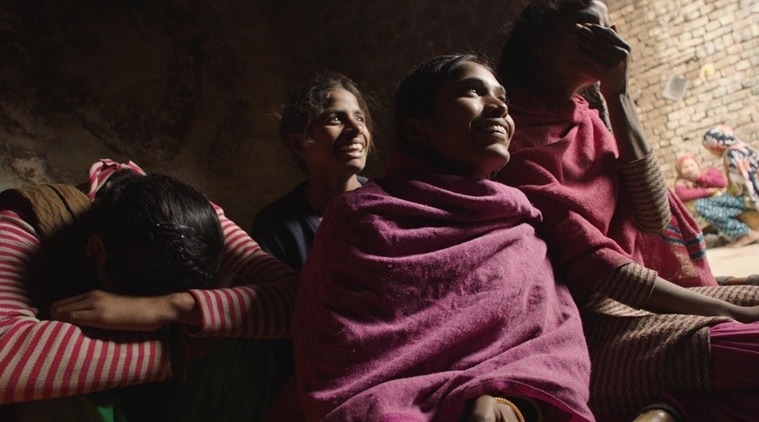
Outrage alone is sometimes not enough to initiate social action in favour of the marginalised. But when supplemented by an awareness of one’s own privilege, the efforts take on a more fruitful form. In the last seven years since she started mentoring the Pad Project at Oakwood School in Los Angeles, there were many occasions when Melissa Berton’s belief in this idea was validated. But last Sunday, on stage at the 91st Academy Awards, as she held up the trophy for Best Documentary (Short Subject) for Period. End of Sentence, her mind went to that powerful moment when she first experienced its truth.
A high school teacher of English literature, Berton had been chaperoning her students to sessions at the UN for years as part of the school’s chapter of Girls Learn International. At one such convention, she came across the story of Arunachalam Muruganantham, and, through that, learnt about the plight of a majority of Indian women who do not have access to menstrual hygiene. What affected her most was that during their periods, young girls would end up skipping school or would drop out altogether. In the next few days, she floated an idea with her students: a project to aid the movement started by Muruganantham, of making low-cost sanitary napkins available to women, so that no girl has to miss school.
“I remember a strong sense of outrage in my students, many of whom were entering womanhood at the time, when they heard that girls their age did not have basic access to menstrual hygiene. They were at the same time aware of their own privilege. This knowledge empowered them to start the Pad Project,” says Berton, 51, a producer on the Oscar-winning film and the backbone of the project. The film, shot in Hapur, on the outskirts of the National Capital, documents the arrival of the pad machine in the village and how it empowered girls. It also shows how the machine started a cottage industry that has economically and socially enabled these women.

When it was launched, the Pad Project was meant to raise funds for arranging supplies and purchasing the machines. The idea of the documentary came later when they decided to archive the impact of the programme. Originally supposed to be filmed in Sierra Leone, the shoot had to be moved to India after the African nation was hit by the Ebola virus. Hapur became their choice, based on research by their partner NGO, Action India.
That the women of the village would economically benefit from the project, was not something Berton and her girls had anticipated. They also did not expect an Oscar for Period. End of Sentence. While the celebrations are still on, Berton has returned to her day job as a teacher.
Many girls who were part of the founding team have now graduated but continue to be associated with the project along with the current batch of Berton’s students. The film’s success, the team hopes, will help take the Pad Project to other developing countries. “We have already installed one machine in Afghanistan while the project in Sierra Leone is underway. We also have requests from a Greek organisation and another from Ireland,” Berton says.
Menstrual taboos differ from country to country. For instance, in Mexico, when a girl begins menstruating, she becomes a child-bearing commodity. Her education is stopped midway and she is married off. “The reasons may vary but what remains common is the shame attached to menstruation,” Berton rues.
The documentary delves into this aspect, showing how both men and women feign ignorance rather than admit what menstruation or a sanitary napkin is.
“Even the US suffers from this problem. We are willing to show all kinds of violence and blood in our films but the handful of times a film mentions periods, it shows an embarrassed father or boyfriend, buying tampons. It is this mindset that needs to be changed. Women will be truly empowered when they are able to, without any shame, talk about menstruation,” says Berton.
This article originally appeared in print with the headline ‘They Came to Hapur’